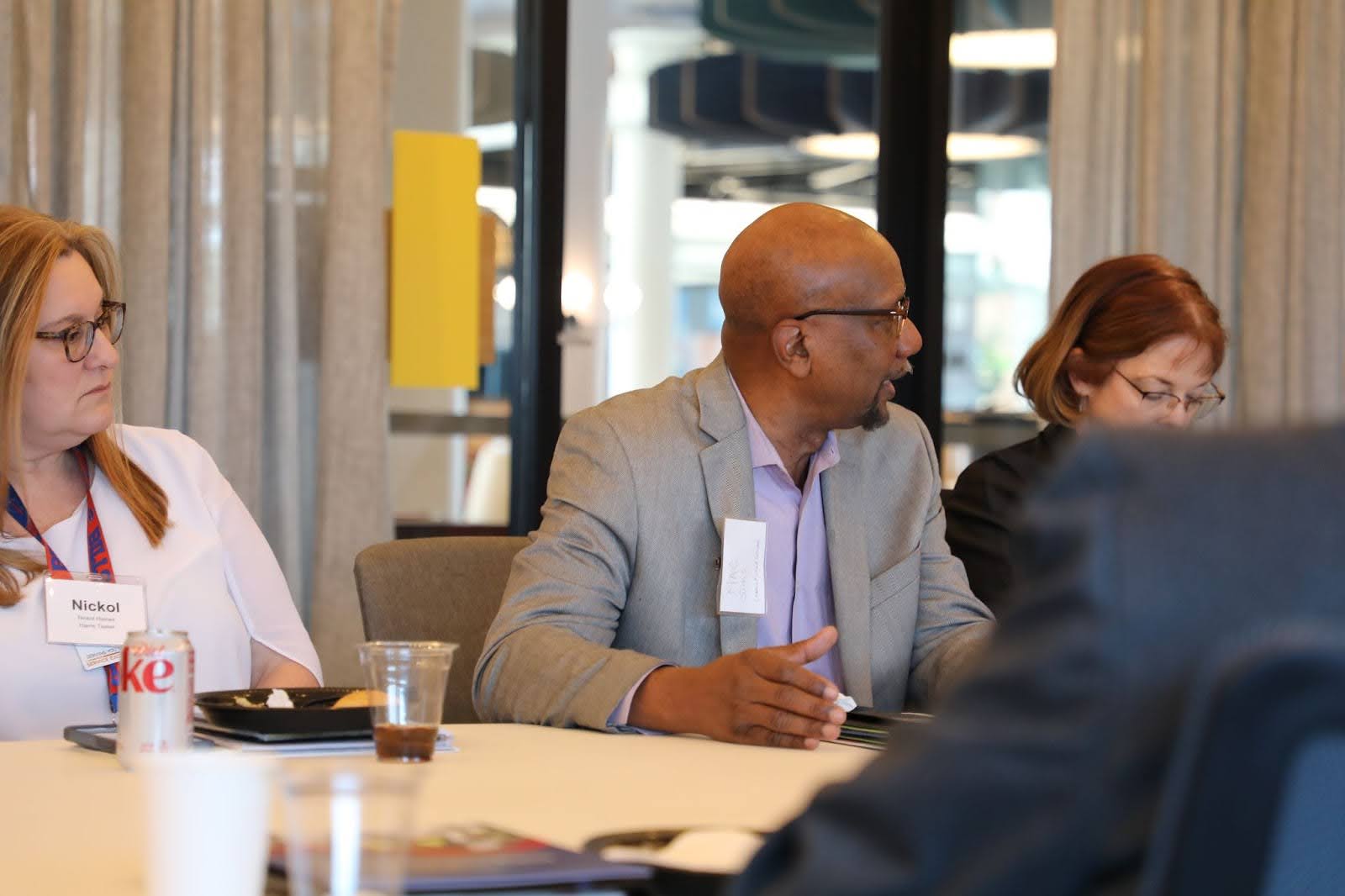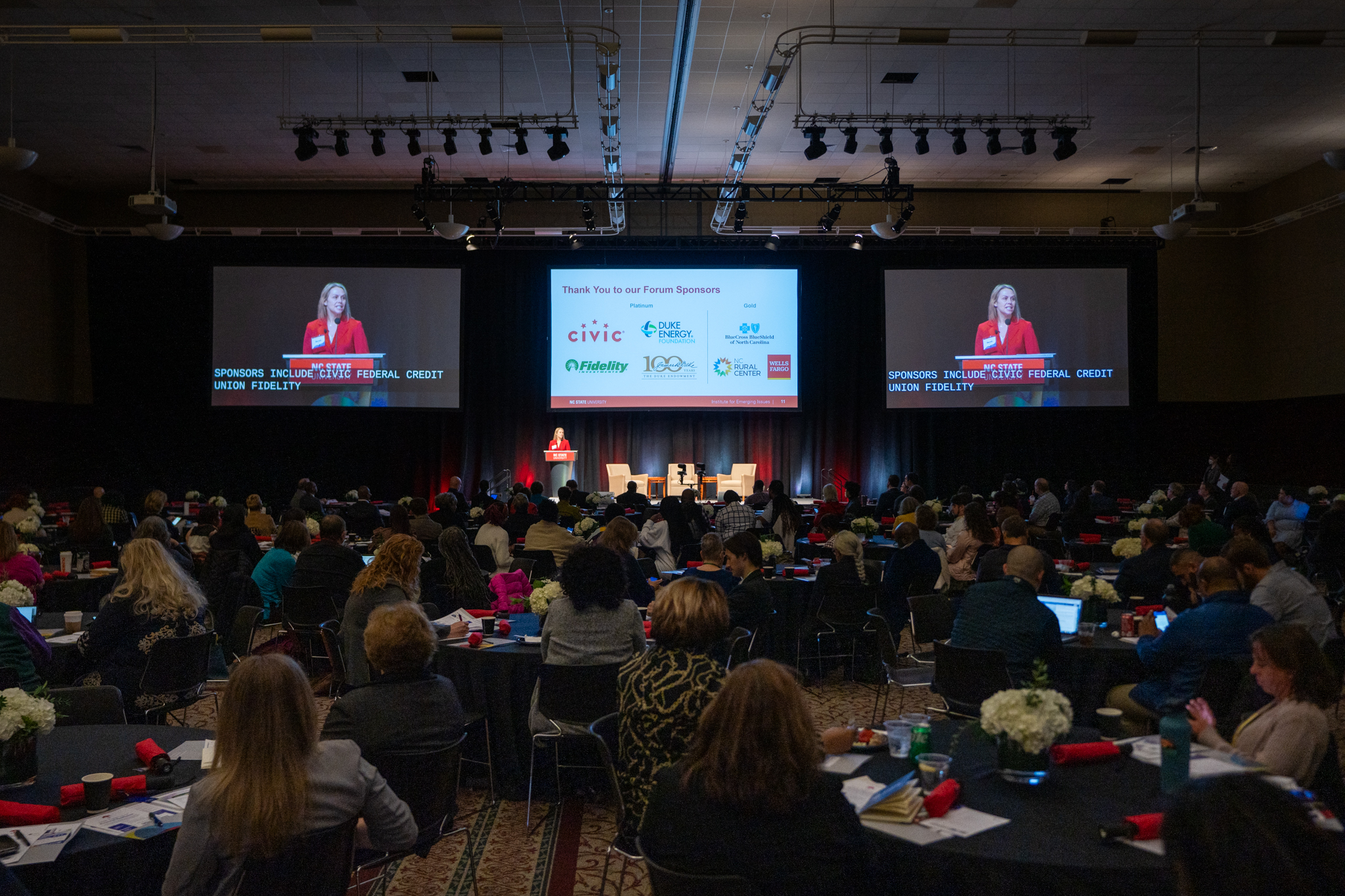Forum Spotlight: Media’s Role in Civic Engagement

One of the things I’m most excited about for our upcoming Emerging Issues Forum is the panel discussion we’ll have on media’s role in creating civically-engaged communities.
A big reason I’m excited? Hello, my name is Beth and I am a recovering journalist.
A newspaper journalist to be exact, a once-idealistic Xennial who entered the newspaper industry just as it was dying. My life’s been all-the-more complicated (and richer, though not in money) because of my career choice, and I’ve learned the hard way just how important a healthy media is to a civically-engaged society.
I’ve also learned just how precarious this media-society relationship has become, as once-dominant media forms like newspapers now battle for precious eyes, ears and attention in a world where the Internet has changed EVERYTHING.
However, I refuse to believe the changes mean the death knell of journalism; I DO believe that as a society we must acknowledge the changes and keep asking the hard question: “What’s next?” Because it doesn’t matter if we get our news from newsprint or computer screens (or maybe by 2023 chips in our head)—we need to get it from somewhere.
Our very sense of community depends on it.
—————————————————————————————
“The less you know the less likely you are to think it’s worth your time to engage,” said Keith King, my former editor at The Cary News, when we talked about the changing media landscape recently. A bureau of The News & Observer, the weekly-produced Cary News still featured a robust selection of local news from western Wake County when I worked there from 2005-2008. That meant most city council meetings, plenty of high school sports games and all the write ups you and your aunts could want about the local craft fair. While a zoning dispute or church bake sale might not sound exciting, this type of local newspaper coverage has been a key component of building American communities for more than a century. It’s easier to care about your neighbors when you know what they’re doing; easier to get involved in local politics when you know when and where the board meeting happens.
The effects of the 2008 recession shredded the ability of most news outlets to cover local news as well as they had. As layoffs loomed, and then happened, more and more national wire stories were used to fill the paper. By the time I left The Cary News in 2008, several rounds of layoffs had already happened, both at the bureau and the main News & Observer office downtown—though I remain awed by the way the N&O organization and its dedicated staff have soldiered on and continue to produce award-winning work.
In reality, the 2008 recession only magnified a preexisting issue: Since the late 1990s, most news outlets had been giving away their work online.
Starting in the mid 1990s, there had been a rush to publish on the Internet, with little thought of how to make money from the new platform. Most media heads saw the Internet as only a supplement to print, not as the ubiquitous primary news product it would become.
“Hindsight’s 20/20,” said Roger Nielsen, my editor at one of my very first newspaper jobs at the Athens Banner-Herald in Athens, Ga. Nielsen had the very hard job of directing a very green me as I covered three counties in North Georgia the early 2000s. Even back then, the staff at the Athens paper stretched thinner and thinner as budgets dwindled. I moved on from the job and like many journalists, Nielsen eventually lost his job there during a series of layoffs. Like me, he has moved on to a different type of communications work, in his case at the University of Georgia.
——————————————————————————————
Also like me, he still watches the journalism industry keenly, with a curious eye as to what will take shape next. He sees most news staying online but worries about the loss of local news. King is excited by some of the public newsroom models like Carolina Public Press.
However, one thing is certain, as the landscape of media continues to change, we need to keep the conversation open about how those changes are happening and how they affect our communities at large, and I’m glad the “ReCONNECT to Community” forum will be a part of that discussion.
–Beth Hatcher
- Categories:


